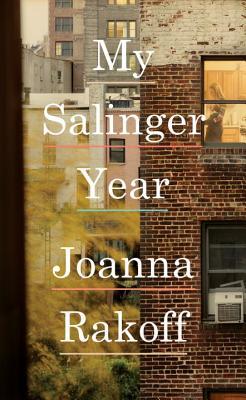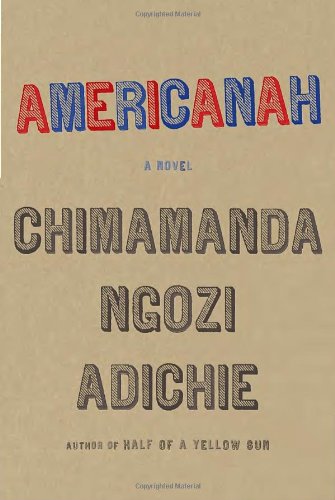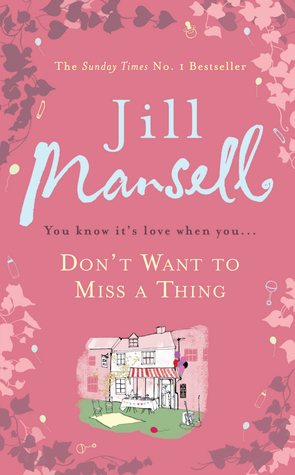For the past few months, something was off. I was not reading any books, just magazines here and there. You see, I had moved to a new neighborhood, which means a lot of time spent unpacking and cutting up cardboard boxes so that they could fit in the recycling bins. A LOT of time. A LOT of cardboard.
Then, it was the holidays and traveling for Christmas, and then the New Year and getting settled into my new neighborhood. There's a lot to learn - for example, the local library here is smaller and they close at 6pm on certain weekdays.
Now that I'm settled and have my new library figured out, I'm reading again, and it feels great!
I'll kick things off with how I started this blog - with a list of books that I did manage to read during my move, and I'll continue adding to the list.
1.
Then Came You by Jennifer Weiner, 2011 - Having just moved, my nights were filled with unpacking and making Target trips. Not having my things where I could get at them easily caused me to become jitterish. To be able to sit and read, I needed something light that would hold my attention, and this book did it for me.
Jennifer Weiner writes unique characters. She does not capture the complexity of relationships like Emily Giffin, but Weiner's characters are always unique and engaging.
- November 2013
2.
Sweet Tooth by Ian McEwan, 2013 - I was excited to read this book. I have never read anything by Ian McEwan and was looking forward to a good spy story that centers around a female protagonist, who happened to have attended Cambridge University, where my boyfriend attended school.
I was disappointed. The characters never felt "right" - for example, I could not see a university student having an affair with a 50+ married paunchy tutor/professor. Maybe a George Clooney type, but not a regular old man.
And, I thought the twist at the end a bit dull and not much of a twist at all.
(Random note - I always refer to Ian McEwan as Ewan McGregor, the actor. Can you see how confusing the names are? Perhaps it is meant to be that I may never really click with an Ian McEwan novel, although I really enjoyed the movie Atonement.)
- December 2013

3.
A Gun for Sale by Graham Green, 1936 - Anything by Graham Green is amazing. He does not waste a word. So much unfolds in a sentence. The slender appearance of his novels are deceptive as so much happens in each of his stories.
Graham Green and Julian Barnes are both writers who I just sit back and think, "wow" after reading each of their works. So far, Raven is my favorite Graham Green character.
(Interesting note - the US edition of this novel is called
This Gun for Hire.)
- January 2014

4.
You Are One Of Them by Elliott Holt, 2013 - This is a surprisingly gripping read that had me turning the pages to see how things would end. I was impressed wit this book.
The story begins with the protagonist Sarah Zuckerman as a child in the late 1980s. Holt captures the essence of the era so well that it reminded me of my own youth, proving an unexpected trip down memory lane.
The novel begins with Zuckerman as a lonely child growing up in Washington, D.C., raised by a single mom. Her world is turned around, as it can be at the age of ten, bu a new friend who moves in down the street. Sadly, the new friend passes away in a plan crash, but not before she becomes the poster child (literally) for peace between the Soviets and USA as tensions rise with the cold war.
(Having lived in D.C. for almost a decade,
the landmarks and descriptions of D.C. in the story reminded me of my
time in the city. Again, another unexpected trip down memory lane.)
Unsure of what to do after graduating college, Zuckerman ends up in Russia in search of information about her childhood friend, who stills lives strong in her memory. During her time in Russia, she meets new friends and is embroiled in a conspiracy. The ending hits the right tone emotionally with the mystery resolved gracefully, without feeling forced or contrived.
With writing that makes you feel like you are experiencing what the characters are experiencing, I've become utterly fascinated with Moscow based on Zuckerman's experience as an ex-pat. I have always wanted to visit the country, and reading You Are One Of Them has only reinforced my desire to go visit.
- February 2014

5.
The Best Of Us by Sarah Pekkanen, 2013 -
The Best Of Us is the perfect beach read. It's about a group of college friends who are swept away to Jamaica on a private jet to celebrate a 35th birthday. The relationships and struggles captured in the story are reflective of any relationship and told in in a touching and witty way.
Issues and problems that the women face in the marriage are serious, but Pekkanen has a way of touchingly handling the most miserable situations, while somehow adding laughter. It's like life - the best way to handle the most miserable situations is often through laughter.
I'm not a mother, but it seems like the struggles and voices of the mothers in the novel are honest, especially one women who is on the brink of losing it as a stay-at-home-mom to four kids. I definitely have to say, reading about the lives of Tina and Gia, Allie and Ryan, Savannah and Gary, and Dwight and Paulene would have been a lot more fun and appropriate for my trip to the Cayman's than the Carravagio biography I lugged all the way over there... - February 2014

6.
Zinsky the Obscure by Ilan Mochari, 2012
A dude-lit book,
Zinksy the Obscure is the story of a Ariel Zinsky, a boy who is traumatized by his childhood, grows into an awkward teen, and even more awkward 20-something.
It is a dark story, but honestly written where I was rooting for Zinsky, even while I was horrified by his actions. The book is compelling and witty, the characters great and the humanity that is captured impressive.
I discovered this novel after reading an interview with the author in a local Cambridge, MA newspaper. Mochari waited tables and wrote
Zinksy the Obscure at various Cambridge institutions.
At the time, it inspired the (sporadically) aspiring writer, as well as the (more consistent) voracious reader, in me. - February 2014
7.
Paris by Edward Rutherfurd, 2013 - Having read Rutherfurd's epic historical fiction sagas
Sarum and
London, I knew exactly what I was getting: Page turning stories about five to six families interwoven throughout the centuries.

His novels are incredibly laid out. Characters are present in historical events that define the city with different generations of families crossing paths in the most unexpected ways. His novels are able to spans over 700 hard-cover pages without losing the readers' interest.
From 1261 to 1968,
Paris tells of the thieving Le Sourd, wealthy (but non-nobles) Renard and Blachard, noble de Cyne, and Jacob families. The German occupation and fate of the Jacob family is absolutely heart-breaking.
The Gascon family make a brief 100 year appearance from 1875 to 1968, with Thomas Gascon being a memorable character who works on both the Statue of Liberty and Eiffel Tower building projects.
I had this on my to-read list after returning from my European vacation last year. Although I have visited Paris twice before, I came back from that trip obsessed with the beauty and richness of the city, and wanting to ready everything there was about the city and its history.
I ended up with about six books from the library related to Paris, but my interest waned as I was back in the very non-Parisian Boston environment. I reserved the book again, and this time, my interest stuck. The next Rutherfurd book on my list is
Russka, feeding on my new obsession with Russia, fueled by
You Are One of Them. - March 2014

8.
The Suitors by Cecile David-Weill, 2012 - Translated from French, The Suitors continues my French obsession. The tone of the book was a bit off-putting at first because it is so...French. Having read Dumas before and enjoying his novels, I have discovered the French style of writing to be naturally reflective of its French - straightforward and never self-conscious.
The English are always wry and self-deprecating, while Americans frequently explain away reality with their optimism and can-do spirit. In both these attitudes though, there's a self-awareness or over-the-topness, but the French just don't have any of that.
It is often said that the French are just so, well, French, and I think I'm realizing what this means. Even if they are not number 1 (as Americans like to proclaim about themselves) or even rank in the top ten percent, they never doubt that what they are doing is simply the right thing.
That said, I struggled to finish this novel about upper class French sisters who scheme to marry a rich husband to purchase L'Agapanthe, the summer home that their parents are planning to sell. There are some clever one-liners, but the French voice is a difficult one for me to relate.
The Ettinguers are a wealthy family though, with the proper manners resulting from wealthy and noble ancestry. They are not just part of the nouveau riche like the Russians and Saudi who are rapidly overtaking the genteel life of the upper crust French society.
Embracing the plan, the Ettinguers sister arrange for wealthy bachelors to visit the weekend home throughout the summer. Reflective of the French, food is prominently, in a subtle way of course, featured in the story. The English and Americans characters are uncouth, loud and unapologetic about their tackiness.
Attitudes about family include children being convenient, but not things to disrupt proper adult activities, even those of their parents. Mistresses are a reality, not necessarily morally improper. Conversations are always delightful and never uncomfortable. And no one must look like they are trying too hard, even if they are. - March 2014














